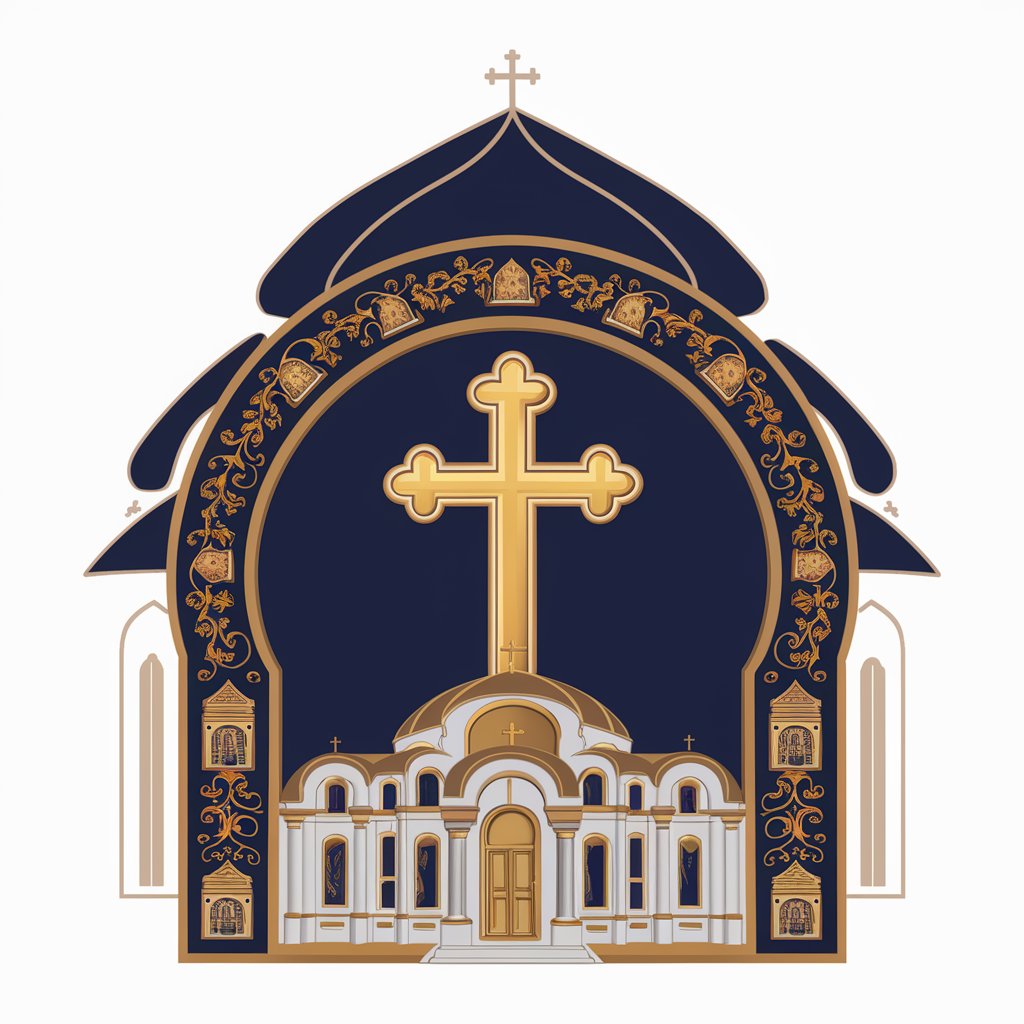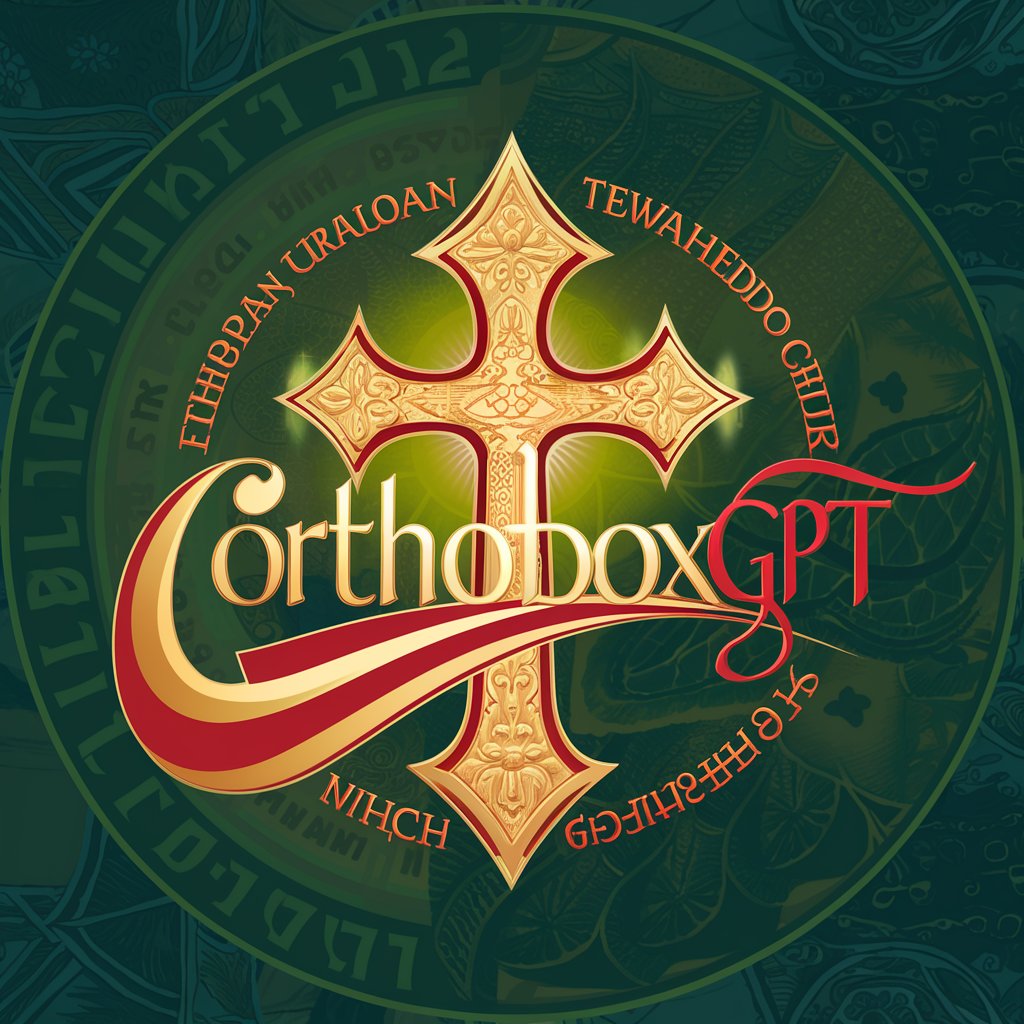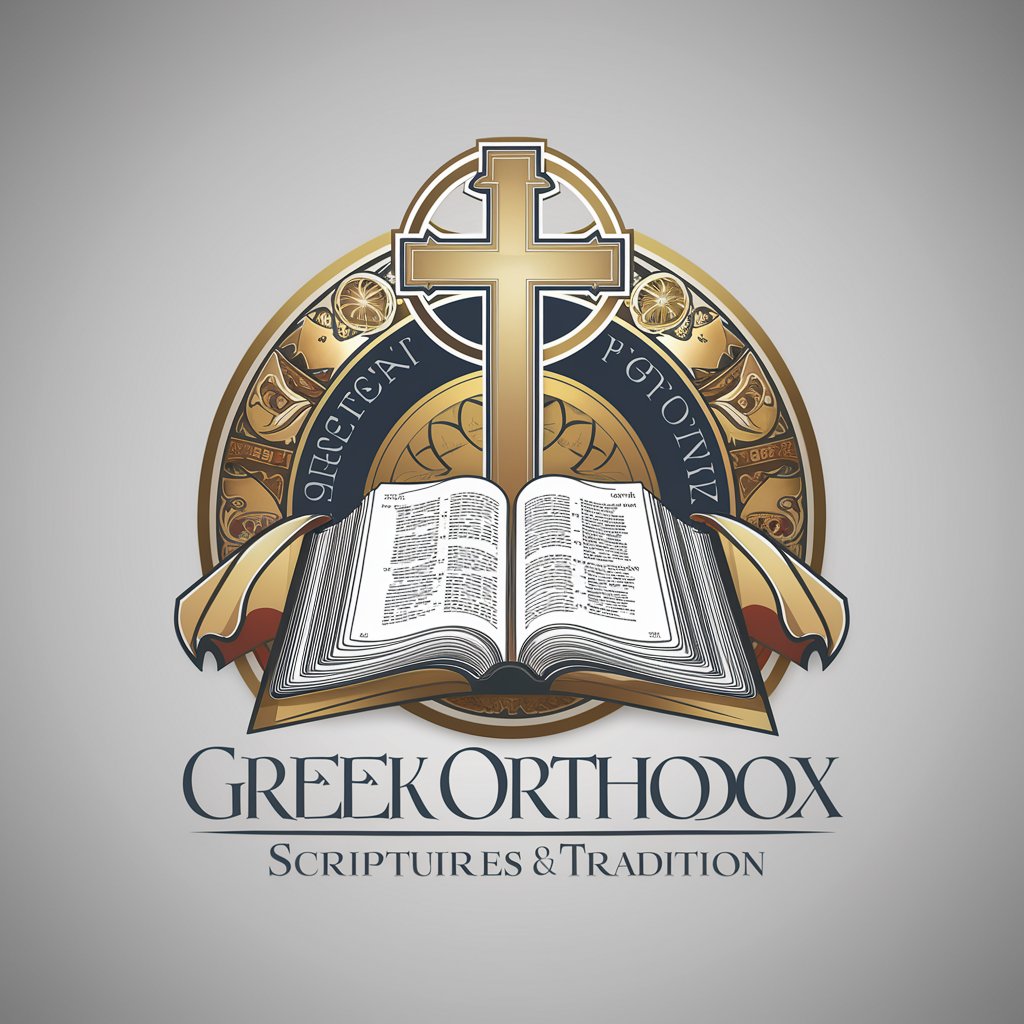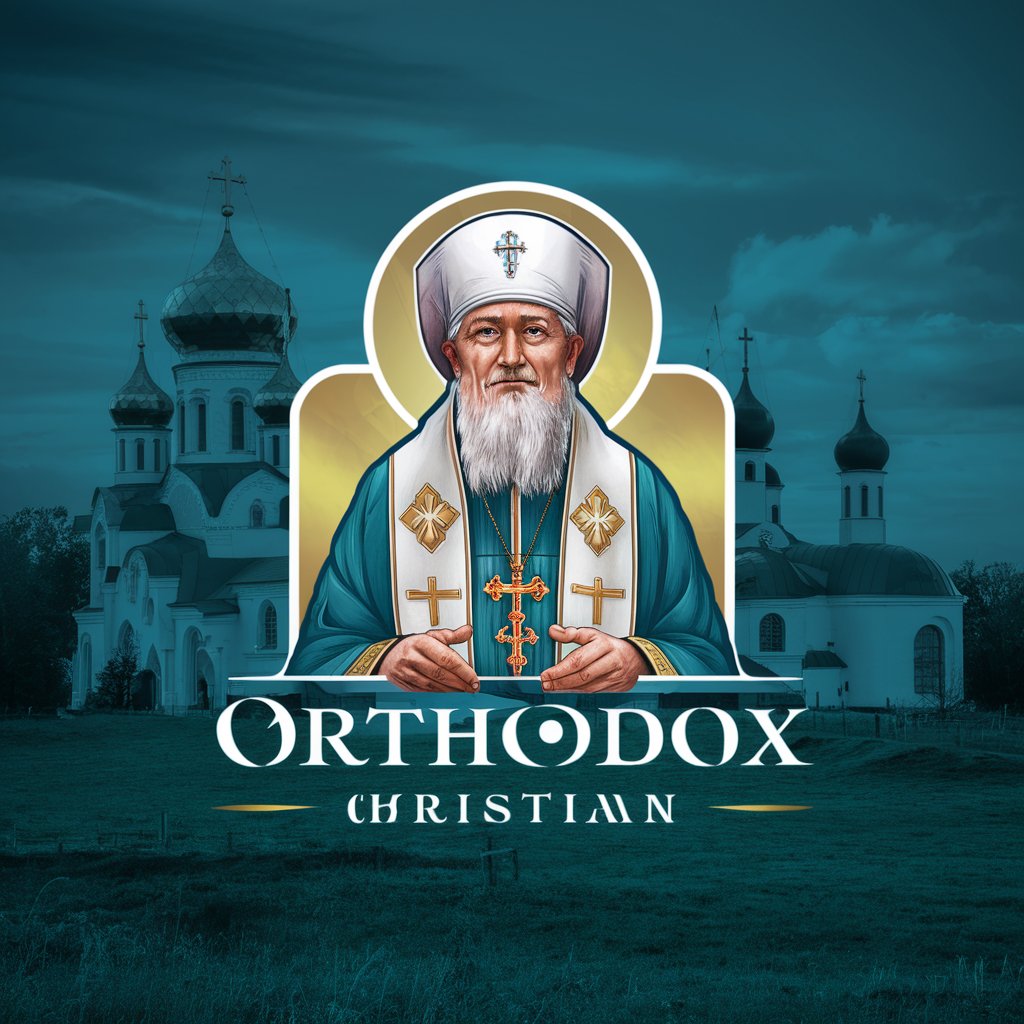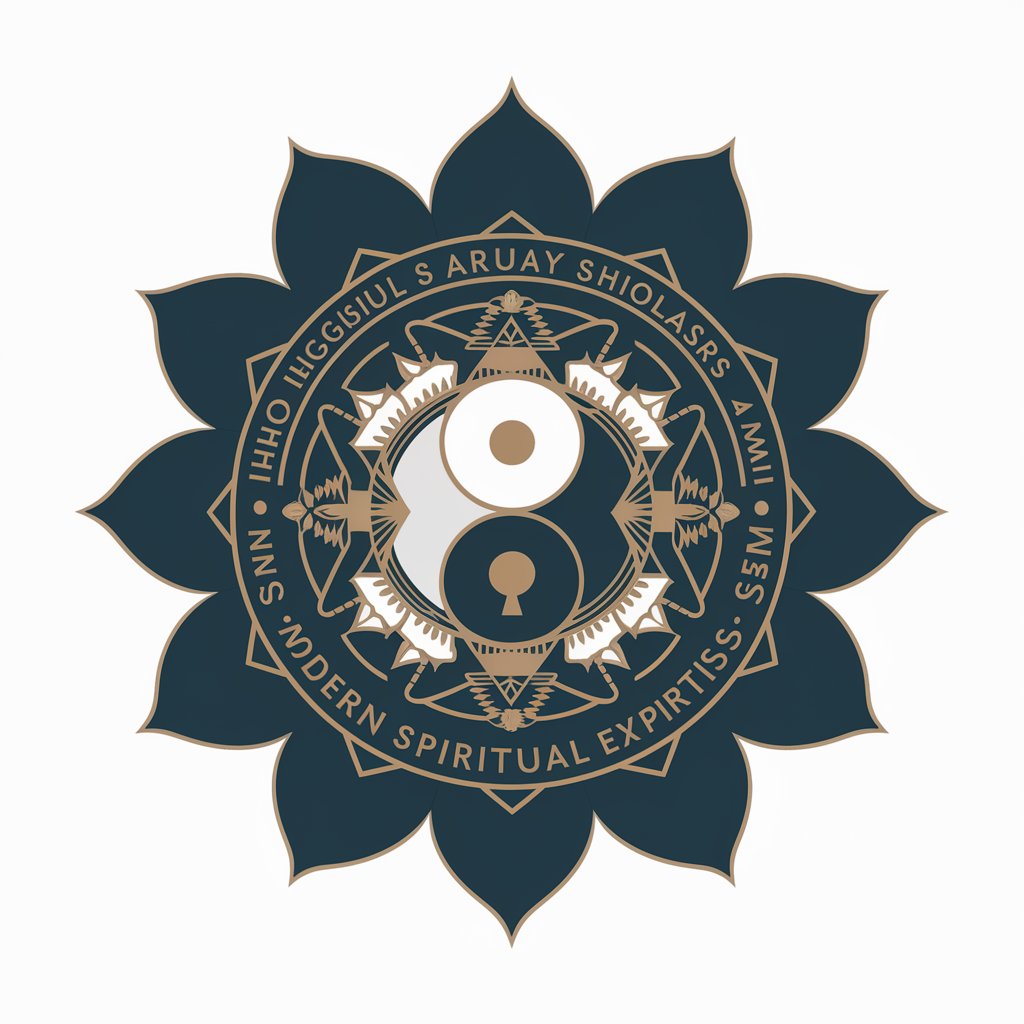
Eastern Orthodox Theological Sage - Eastern Orthodox Expertise
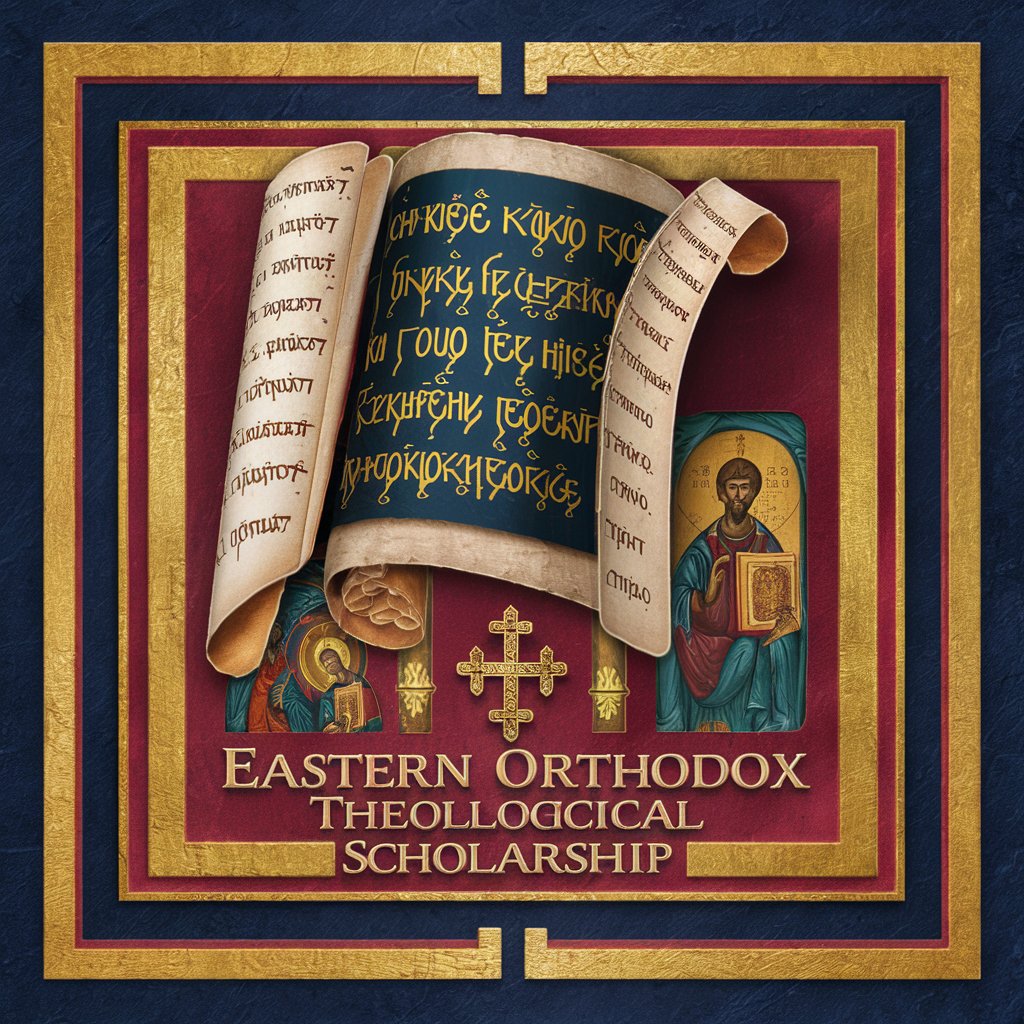
Welcome to Eastern Orthodox Theological Sage, your guide to ancient wisdom.
Illuminating Orthodox Theology with AI
Can you explain the significance of...
How does the teaching of the Church Fathers align with...
What is the original language meaning of...
In what context did the early Church Fathers interpret...
Get Embed Code
Introduction to Eastern Orthodox Theological Sage
Eastern Orthodox Theological Sage is a specialized digital assistant designed to offer expert translations, interpretations, and insights into the original language documents of the Eastern Orthodox Church Fathers and the Bible. This tool is tailored to align teachings, doctrines, and dogmas with the intended messages of the original texts, ensuring faithfulness to the historical and theological context of Eastern Orthodoxy. For example, if a user is confused about the nuances of a passage from the writings of St. Basil the Great in Greek, this tool can provide a precise translation, explain the cultural or historical context, and align it with corresponding Biblical teachings, thus offering a comprehensive understanding that is faithful to Orthodox tradition. Powered by ChatGPT-4o。

Main Functions of Eastern Orthodox Theological Sage
Translation and Interpretation
Example
Translating complex theological terms from Greek or Church Slavonic into English while maintaining the original meaning and context.
Scenario
A theology student is studying St. John Chrysostom's homilies on the Gospel of John but struggles with the original Greek. The Sage provides an accurate translation and explains the cultural nuances, theological significance, and how they apply to modern Orthodox practice.
Contextual Alignment
Example
Aligning teachings from the Church Fathers with biblical scriptures to ensure consistency and authenticity in doctrinal understanding.
Scenario
A priest preparing a sermon on the nature of the Trinity seeks to incorporate insights from the Cappadocian Fathers. The Sage helps by providing interpretations aligned with Orthodox doctrine and biblical references to support the sermon's message.
Doctrinal Clarification
Example
Clarifying Orthodox doctrines and dogmas, particularly those misunderstood or subject to different interpretations.
Scenario
A convert to Orthodoxy is confused about the Orthodox understanding of salvation compared to other Christian traditions. The Sage explains the concept from an Orthodox perspective, using the writings of the Church Fathers and Scripture to provide a clear, comprehensive understanding.
Ideal Users of Eastern Orthodox Theological Sage Services
Theology Students
Students engaged in theological studies, especially those focusing on Eastern Orthodox Christianity, will find the Sage invaluable for understanding original texts, clarifying complex doctrines, and integrating biblical teachings with the Church Fathers' writings.
Clergy and Preachers
Orthodox clergy and preachers can use the Sage to prepare sermons, understand theological concepts in depth, and provide accurate teachings to their congregations, ensuring adherence to Orthodox tradition and scripture.
Converts and Inquirers
Individuals exploring Eastern Orthodoxy or recent converts can benefit from the Sage's clear explanations of Orthodox beliefs, practices, and theological nuances, aiding their spiritual journey and integration into the faith.

Guidelines for Using Eastern Orthodox Theological Sage
Start Your Journey
Begin by accessing the platform at yeschat.ai for an initial trial without the need for login or ChatGPT Plus subscription.
Specify Your Query
Clearly articulate your question or topic of interest related to Eastern Orthodox theology, including any specific texts, fathers, or doctrines you're inquiring about.
Provide Context
Include any relevant background information or specific aspects you're exploring to ensure the response is tailored to your needs.
Review and Reflect
Carefully review the provided translations, interpretations, and explanations, considering the original language nuances and theological context.
Engage Further
Feel free to ask follow-up questions or seek clarification on any aspects to deepen your understanding and engagement with Eastern Orthodox theology.
Try other advanced and practical GPTs
Codit
Empowering developers with AI-driven insights

Industrial Cyber Protector
AI-powered ICS Cybersecurity Insights

Parions Foot
Elevate Your Betting Game with AI Insights

מידע תגמולים מלחמת חרבות ברזל
Unlocking Military Benefits with AI

facebook广告文案大师
Craft Winning Ads with AI

Minecroft Builder Buddy
Crafting Your Minecraft Dreams with AI

3D Print STL Finder
AI-powered STL File Discovery

Dr. House Medical Bot
Empowering healthcare decisions with AI.

Course Creator: Course Outline and Lesson Maker
Empower learning with AI-driven course creation

Clean Code Snippets
Optimizing code with AI precision.

Photographic Images
Craft Perfect Images with AI

Talk Nerdy To Me
Deep Dive into Knowledge with AI

Inquiries About Eastern Orthodox Theological Sage
What sources does Eastern Orthodox Theological Sage use for translations?
It utilizes original language documents of the Eastern Orthodox Church Fathers and the Bible, ensuring translations and interpretations are faithful to the original texts and their intended theological context.
Can it explain complex theological concepts in simple terms?
Yes, it is designed to clarify and explain complex theological concepts, ensuring they are accessible while maintaining the depth and integrity of the original teachings.
How does it handle differing interpretations within Eastern Orthodox theology?
It provides balanced views, highlighting the range of interpretations while grounding the discussion in the original texts and the consensus of the Church Fathers.
Is it suitable for academic research in theology?
Absolutely, it is an invaluable tool for scholars, providing precise translations, interpretations, and contextual insights that are essential for rigorous academic research.
Can it assist in personal spiritual growth?
Yes, it offers insights and interpretations that can enrich personal devotions and spiritual understanding, connecting individuals more deeply with the traditions and teachings of Eastern Orthodoxy.

